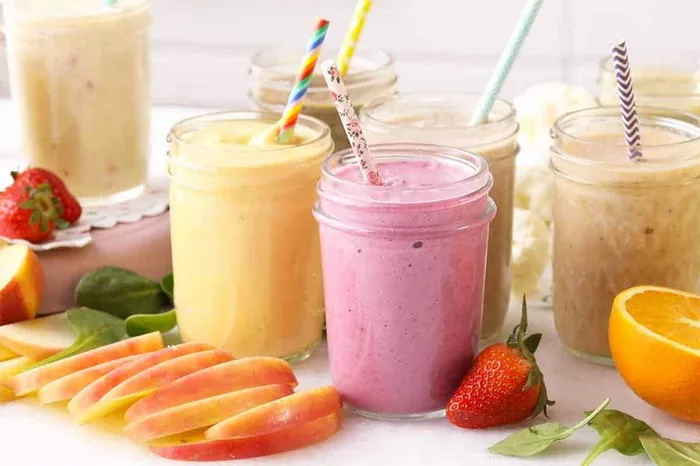Inflammation is a natural response by the body to fight off harmful stimuli such as pathogens, injuries, or irritants. However, when inflammation becomes chronic, it can lead to various health issues including heart disease, arthritis, and diabetes. While medications can help manage inflammation, lifestyle changes such as diet can also play a crucial role. One tasty and effective way to combat inflammation is by incorporating anti-inflammatory ingredients into your diet through smoothies.
Understanding Inflammation
Before delving into the benefits of anti-inflammatory smoothies, it’s important to understand inflammation. Acute inflammation is a short-term response that helps the body heal, while chronic inflammation is long-term and often harmful. Chronic inflammation is associated with various conditions like rheumatoid arthritis, inflammatory bowel disease, and asthma.
Chronic inflammation is influenced by diet, stress, and lifestyle. Certain foods can either promote or reduce inflammation in the body. Foods high in sugar, refined carbohydrates, and trans fats tend to promote inflammation, while those rich in antioxidants, omega-3 fatty acids, and other nutrients can help combat it.
The Role of Smoothies in Fighting Inflammation
Smoothies are an excellent way to incorporate a variety of anti-inflammatory foods into your daily diet. By blending ingredients together, you can create a delicious and convenient drink that is packed with nutrients known to reduce inflammation. Here are some key ingredients commonly used in anti-inflammatory smoothies and their benefits:
1. Berries
Berries such as strawberries, blueberries, raspberries, and blackberries are loaded with antioxidants like anthocyanins and quercetin, which have anti-inflammatory properties. These antioxidants help combat oxidative stress in the body, reducing inflammation and lowering the risk of chronic diseases.
2. Leafy Greens
Leafy greens like spinach, kale, and Swiss chard are rich in vitamins, minerals, and phytonutrients that possess anti-inflammatory properties. They are particularly high in vitamin K, which has been linked to lower levels of inflammatory markers in the blood.
3. Turmeric
Turmeric contains curcumin, a potent anti-inflammatory compound. Curcumin has been shown to inhibit inflammatory pathways in the body and may help alleviate symptoms of inflammatory conditions like arthritis and inflammatory bowel disease.
4. Ginger
Ginger is another spice known for its anti-inflammatory effects. It contains gingerol, a bioactive compound that can reduce inflammation and oxidative stress. Adding fresh ginger to your smoothies can provide a zesty kick while helping to combat inflammation.
5. Omega-3 Fatty Acids
Omega-3 fatty acids, found in foods like flaxseeds, chia seeds, and walnuts, have powerful anti-inflammatory properties. They help balance the body’s ratio of omega-3 to omega-6 fatty acids, which is important for reducing inflammation.
6. Pineapple
Pineapple contains bromelain, an enzyme with anti-inflammatory properties. Bromelain can help reduce swelling and inflammation, making pineapple a great addition to anti-inflammatory smoothies.
Recipe Ideas for Anti-Inflammatory Smoothies
Now that we understand the key ingredients, let’s explore some delicious anti-inflammatory smoothie recipes:
1. Berry Blast Smoothie
- 1 cup mixed berries (strawberries, blueberries, raspberries)
- 1 handful spinach
- 1 tablespoon chia seeds
- 1 teaspoon turmeric powder
- 1 cup almond milk
- Optional: honey or maple syrup for sweetness
2. Tropical Turmeric Smoothie
- 1 cup pineapple chunks
- 1 small piece of fresh ginger
- 1 tablespoon flaxseeds
- 1 handful kale
- 1/2 banana
- 1 cup coconut water
3. Green Goddess Smoothie
- 1 cup spinach
- 1/2 avocado
- 1/2 cucumber
- 1 tablespoon fresh mint leaves
- Juice of 1 lime
- 1 cup coconut water or plain water
Tips for Making Anti-Inflammatory Smoothies
- Use a high-quality blender to ensure smooth consistency.
- Experiment with different combinations of fruits, vegetables, and spices to find your favorite flavors.
- Add a source of healthy fats like avocado or nuts to enhance nutrient absorption.
- Incorporate a variety of colors into your smoothies to maximize the range of nutrients and antioxidants.
Incorporating Anti-Inflammatory Smoothies into Your Routine
To reap the benefits of anti-inflammatory smoothies, consider incorporating them into your daily or weekly routine. You can enjoy them as a refreshing breakfast, post-workout snack, or even a healthy dessert alternative. By consistently consuming anti-inflammatory ingredients through smoothies, you can help reduce chronic inflammation and support overall health.
Conclusion
In conclusion, smoothies can be a delicious and effective tool in managing inflammation. By incorporating anti-inflammatory foods like berries, leafy greens, turmeric, and ginger into your smoothie recipes, you can create nutrient-packed beverages that help combat chronic inflammation and promote overall wellness. Experiment with different ingredients, flavors, and textures to find the smoothie combinations that work best for you. With regular consumption of anti-inflammatory smoothies, you can take proactive steps towards improving your health and reducing inflammation in your body. Start blending today for a healthier tomorrow!
Related Topics:


























